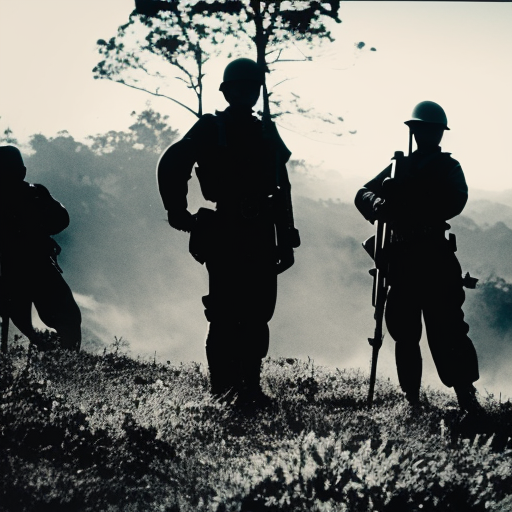Battle of Majuba Hill: The Boers’ Victory
The Battle of Majuba Hill, which took place on February 27, 1881, was a significant event during the First Boer War. It was a decisive victory for the Boers, who were fighting against the British Empire. The battle occurred near the town of Volksrust in what is now South Africa.
Background
The First Boer War began in 1880 when the Boers, descendants of Dutch settlers, rebelled against British rule in the Transvaal region. The Boers were unhappy with the British annexation of the Transvaal in 1877 and sought to regain their independence. The British, under the leadership of Sir George Pomeroy Colley, launched a military campaign to suppress the Boer rebellion.
The British Offensive
In early 1881, Colley led a force of around 4000 British soldiers to capture key Boer positions. One of these positions was Majuba Hill, a strategically important location that overlooked the surrounding area. Colley believed that capturing Majuba Hill would give the British a significant advantage in the conflict.
The Battle
On the morning of February 27, Colley’s forces began their ascent up Majuba Hill. However, the Boers, led by General Piet Joubert, were well-prepared and had positioned themselves on the hill. As the British soldiers climbed, they were met with heavy fire from the Boers, who had the advantage of higher ground.
The Boers’ accurate marksmanship quickly took its toll on the British forces. Colley himself was shot and killed early in the battle, further demoralizing the British soldiers. Despite their numerical superiority, the British were unable to dislodge the entrenched Boers from their positions.
As the battle raged on, the British suffered heavy casualties. The Boers, on the other hand, were able to use the natural cover provided by the hill to their advantage. By the afternoon, it became clear that the British were unable to make any progress and were facing defeat.
The Aftermath
Realizing the futility of the situation, the British forces eventually retreated from Majuba Hill. The Boers emerged victorious, having successfully defended their positions against a much larger and better-equipped enemy. The Battle of Majuba Hill was a turning point in the First Boer War and had significant implications for the conflict.
The British defeat at Majuba Hill shocked the Empire and led to a reevaluation of their strategy in the region. The Boers’ success demonstrated that the British could not underestimate their opponents and would need to make concessions to end the conflict. Negotiations between the two sides began shortly after the battle, eventually leading to the signing of the Pretoria Convention in 1881.
The Pretoria Convention granted the Boers self-government and restored their independence in the Transvaal. The British recognized the Boers’ right to govern themselves and agreed to withdraw their troops from the region. The Battle of Majuba Hill marked a significant victory for the Boers and set the stage for future conflicts between the British Empire and the Boer republics.
In conclusion, the Battle of Majuba Hill was a decisive victory for the Boers during the First Boer War. The Boers successfully defended their positions on Majuba Hill against a much larger British force, leading to a reevaluation of British strategy in the region. The battle ultimately resulted in the Boers regaining their independence in the Transvaal and set the stage for future conflicts in South Africa.












